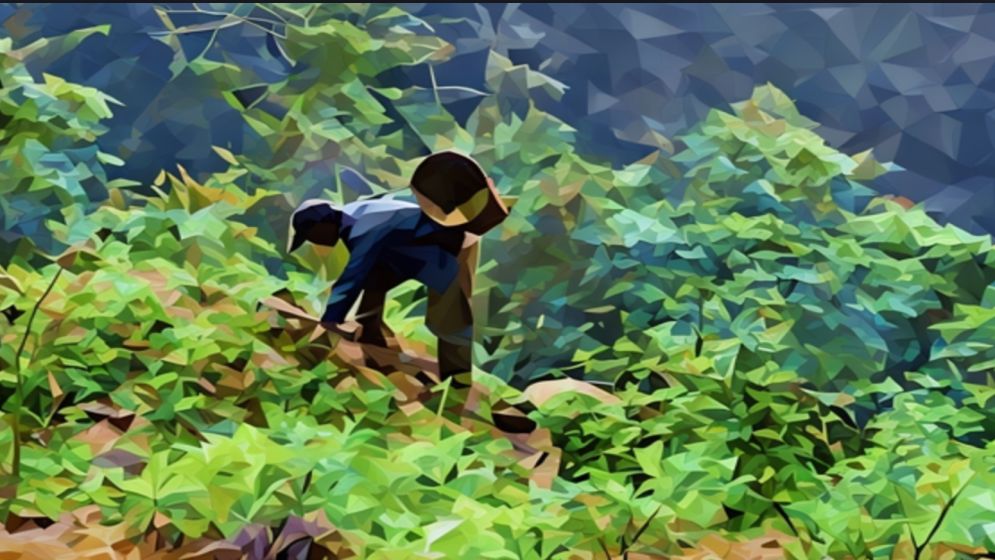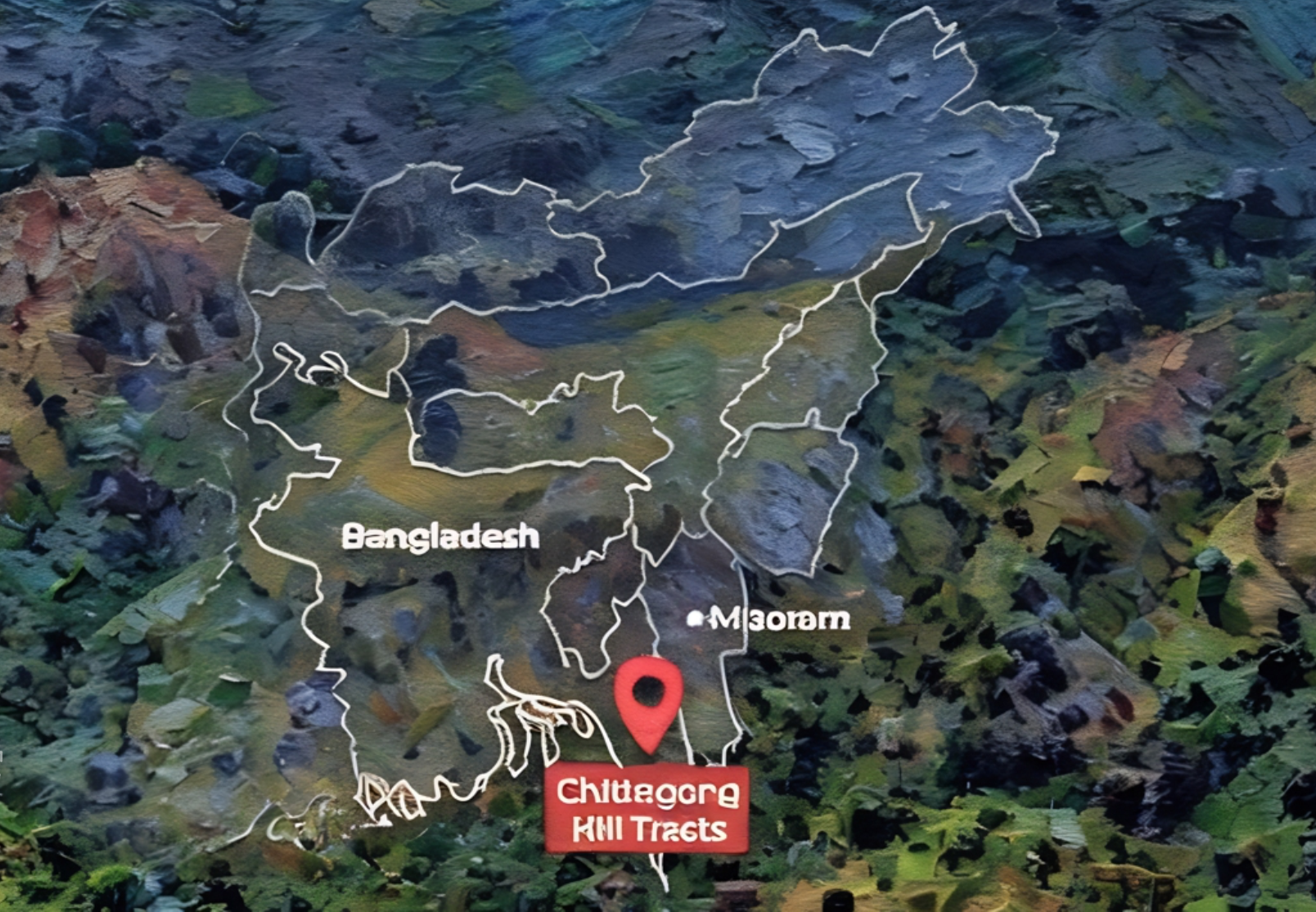Chittagong Hill Tracts: Navigating the paradoxes of identity and community

Life was beautiful among the lush hills as I remember my journey through the Chittagong Hill Tracts in the 80s.
My time spent in various regions enveloped me in the soothing sounds of flowing streams, providing tranquility even during turbulent times.
Nights were filled with the mysterious calls of cicadas in Nyctofilia. The solitary life in places like Bornal, Shilbon, Suryachondropara, Lakhkhichari, Masalong, Kutukchori, and Tarabunia forged strong connections between me and the locals.
This series of experiences culminated in my leadership role in Khagrachari in 2012, leaving a lasting impact on my life.
Decades later, I was thrilled to reunite with Jogidsh Chakma from Shilbon and the little Joshy Tripura with his two children, a moment filled with indescribable joy.
I had journeyed miles as a commander to visit Shurod Buhari Khisha, the headman of Suryachodropara in Mahalchari, to express my deep gratitude for his hospitality during my early days in the hills.
Ring Sanga Pankhu, a member of the Lushai tribe, traveled all the way from Marishay to meet me in Ghagra, honoring the bond we had formed.
Locally grown turmeric, bananas, and pineapples still find their way to my home in Dhaka, sent by Shuvash and Jogodish Chakma from Ghagra.
The ups and downs of life in the hills continue to connect me with the people there, strengthening our bond. Many share their occasional troubles with me, fully aware that I can only help them from afar.
I find it difficult to make a tangible difference in alleviating their suffering caused by communal conflicts, and I can't escape the emotional weight of their struggles.

Different perceptions and
perspectives
Reflecting on my long stay in the hills, I've noted in several articles for the Daily Star in 2012 that perceptions differ significantly across various regions.
The complexities of demographics, cultural diversity, and the challenges of scarce land for livelihoods, as well as the joys and sorrows of the hill people, are often overlooked by those in the plains.
Less than 1 percent of Bangladesh's population resides in the hills, which cover only 11 percent of the country's total area.
The flora and fauna, representing 40 percent of the nation's forest area, are at risk due to inadequate conservation efforts.
With limited arable land, the local population largely relies on slash-and-burn agriculture. The rapid growth of non-tribal populations is leading to demographic imbalances and insecurity for the tribal communities.
Since the 1980s, sporadic communal clashes have erupted in the hills, fueled by the influx of people from the plains, further straining the already scarce agricultural resources.
Since the 1980s, I've observed how minor incidents can escalate into larger communal clashes that capture national attention, only to fade away once the hill communities settle down and return to their lives.
The hardships faced by both communities remain unchanged, despite the assistance—both financial and material—that often flows in during these turbulent times.
The differing economic mindsets of the two groups play a crucial role in sparking these conflicts: the tribal population seeks new land, while the non-tribal community aims to secure the limited arable land available.
Occasionally, seemingly trivial issues can escalate into major crises, creating a national uproar until tensions ease again.
The security forces, local administration, national media, and internal provocateurs often either ignore the situation until it results in loss of life or significant property damage, or they sensationalize it, exaggerating the severity of the conflict.
There are deep-seated misconceptions among both communities, such as the belief that non-tribal groups might be forced out of the hills or that tribal populations could be further marginalized to the point of fleeing to neighboring countries.

What we often misunderstand…
The reality is that the potential for coexistence is often overlooked, leading to recurring clashes. The military continues to guard outposts deep in the jungles, while the police still treat their role in the hills as akin to that in the plains.
Military checkpoints create feelings of irritation among the local population, who perceive themselves as second-class citizens.
Both military and civil authorities remain hesitant to appoint tribal officials to higher positions due to an unfounded fear of compromising sovereignty.
The allocation of only three parliamentary constituencies for the 11% of land mass occupied by the hills reflects the political marginalization they face.
While development partners contribute to human development through educational and health initiatives, these efforts fall short of making a lasting impact on the region as a whole.
Recent growth in tourism has boosted the local economy, but it also poses significant environmental risks; for example, Sajek could potentially lead to a human disaster.
Furthermore, while the hydroelectric project at Kaptai provides electricity to Chittagong, many areas in the hills remain in darkness at night.
Aside from a few routine schools and colleges, there has been little development infrastructure to elevate this underserved population to the level of the mainstream.
The rich cultures of the various tribes are on the verge of extinction due to insufficient government support.
The accumulated grievances among this small population unite them in conflict against other communities, driven by the belief that the government does not represent them.
Conflicts will only cease when the people of the hills are no longer categorized as tribal or non-tribal, but are instead recognized as valued national citizens deserving of respect across all ethnicities.
The diversity of the population should be seen as a source of strength for the country rather than as a threat to sovereignty.
—
Brigadier General (Retd) AF Jaglul Ahmed, ndc, psc, Phd a regular contributor in national daily’s

